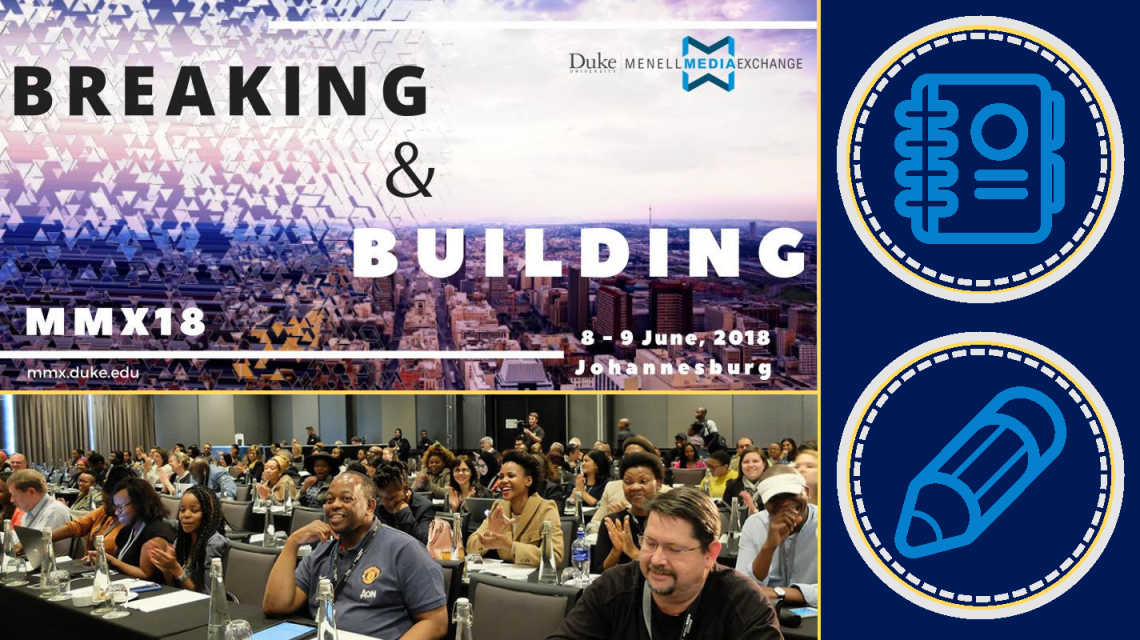
As journalists throughout southern Africa face financial and political challenges to building a strong, independent news media, the place they’ve turned to for advice and support for the past seven years has been the annual Duke Menell Media Exchange conference.
Organized by with support from Duke faculty members and staff, the conference welcome more than 400 journalists from South Africa and neighboring countries to Johannesburg, South Africa, from June 8-9.
The conference comes out of the interest of Jeff Zients ’88 and his wife, Mary, a native of South Africa, in supporting South African journalism and strengthening democratic institutions in the country. It has grown into one of the few large opportunities for African journalists to meet and share information.
“The media world in South Africa faces real and urgent challenges, from budgetary pressures and newsroom convergence, to laws and tactics that limit media freedom,” said conference founder Mary Menell Zients. “The vision of this conference is to create an annual forum for the exchange of ideas to explore these challenges and to examine useful tools and practices together.”
This year's conference will include some new initiatives such as an expanded Student Newsroom, with eight universities involved and four days of programming as well as expanded community Journalism Spotlight, sponsored by the US embassy in South Africa to bring journalists and youth learners from a number of rural community radio stations to participate and present at MMX.
Two Duke students, Taylor Jones and Chelsea Scott, will attend where they will be able to meet with extraordinary journalists and get a feel for how they work. Sanford School Professor Kenneth Rogerson will again help oversee the student newsroom.
The students along with others will be exposed to a variety of skill sets that coincide with the conference theme of “Breaking and Building.” According to organizers, the objective is to have journalists network in open spaces and share innovative ideas that can help with thinking differently about challenges in the news.
Program highlights include:
- A panel discussion on “Press, Politics, and Polls: Lessons from the US Election” with keynote speaker CNN political reporter, Betsy Klein.
- Panel discussion on “Building a New Public Broadcaster” with Phathiswa Magopeni, head of news for the South African Broadcasting Corp.
- Creative skill set workshops to help journalists take advantage of new technologies, including digital tools for fact checking and storytelling and building a health science reporting toolkit.
- A program where journalists share short takes on innovative reporting on neglected and hard-to-cover topics.
“We hope that our project will inspire journalists to continue the work of protecing and building a strong and free media community,” Zients said, “which is at the very heart of South Africa realizing its potential as a leader in Africa and around the world.”
The conference is an extension of the four decades of work done through the Menell Fellowship for South African Journalists. The program has provided training and support to dozens of South African journalists, many of whom are now media leaders around the country. Fellows take Duke classes and work on independent study projects under the guidance of faculty members.
Alexis Owens is a student at NC Central University who is working this summer as an intern in Duke University Communications.